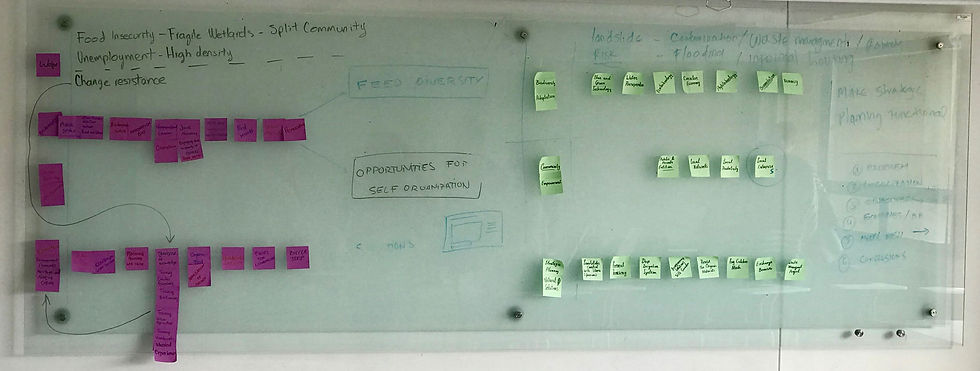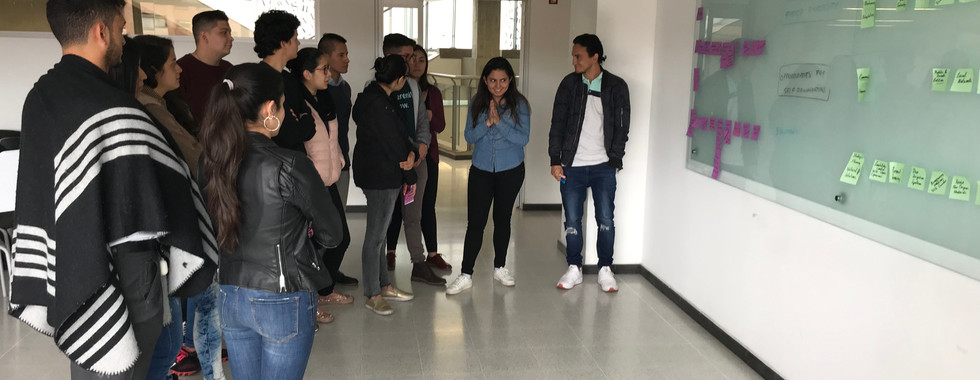Resilient Cities on La Salle Summer Academy 2019
- TIC UNESCOSOST

- Jul 21, 2019
- 2 min read
Dr. Jordi Morató, coordinator of UNESCO Chair on Sustainability was training on Resilient Cities, Rethinking Urban Transformation on the Circular Economy framework, in the International La Salle Summer Academy.

From 8th to 19th, July 2019, the La Salle International Summer Academy was held on Bogota, at the La Salle Chapinero Campus, with the participation of 13 international teachers from different countries.
The UNESCO Chair on Sustainability developed a training workshop on Resilient Cities, working with the students two applied real cases from Bogota, to transform two urban areas using Nature Based Solutions and applying the Circular Economy Approach.
Nature-based Solutions (NbS) are defined by IUCN as “actions to protect, sustainably manage, and restore natural or modified ecosystems, that address societal challenges effectively and adaptively, simultaneously providing human well-being and biodiversity benefits”.
NbS are intended to support the achievement of society’s development goals and safeguard human well-being in ways that reflect cultural and societal values and enhance the resilience of ecosystems, their capacity for renewal and the provision of services.
NbS are designed to address major societal challenges, such as food security, climate change, water security, human health, disaster risk, social and economic development.
On the other hand, and looking beyond the current take-make-waste extractive industrial model, a circular economy approach aims to redefine growth, focusing on positive society-wide benefits, with gradually decoupling economic activity from the consumption of finite resources, and designing waste out of the system. Underpinned by a transition to renewable energy sources, the circular model builds economic, natural, and social capital, and it is based on three principles: Design out waste and pollution, Keep products and materials in use and Regenerate natural systems.

Bioeconomy as the production of renewable biological resources and the conversion of these resources and waste streams into value added products, such as food, feed, bio-based products and bioenergy was the application of Circular Economy to Agroindustrial companies.
The potential of bioeconomy in Colombia was analyzed and applied with students to a sector of Bogota, in order to achieve a better sustainable development at local scale.


























Comments